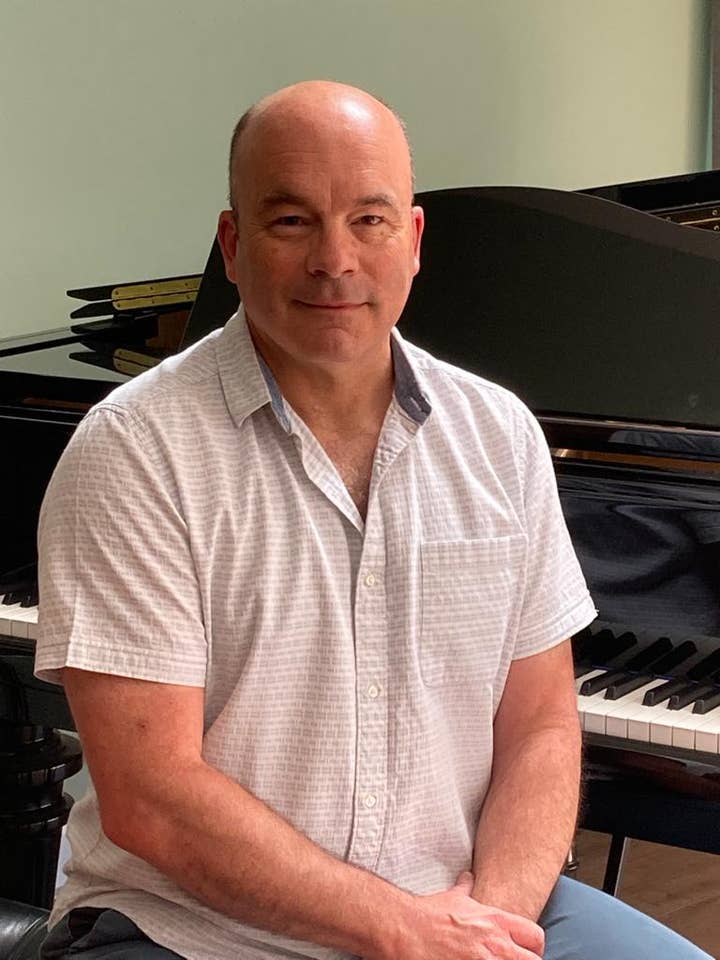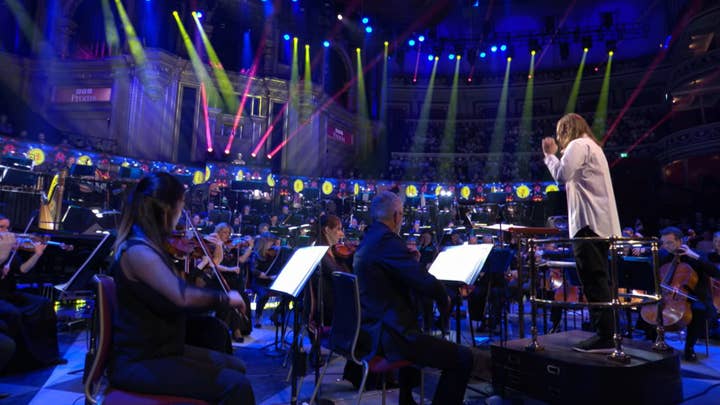Video games music at the BBC Proms: "It was only a matter of time"
Composers and professionals celebrate "history in the making" as gaming scores join prestigious music event
The industry is celebrating another cultural milestone after video games scores were added to the library of culturally significant music played at the BBC Proms.
The annual event has run in some way or another since 1895, first showcasing classical music, before branching into other genres such as jazz and eventually film and television scores.
But 2022 marks the first time video game soundtracks have been included in the line-up, with a special concert 'From 8-Bit To Infinity' hosted last week.
"It is a really welcome move to hear video games music brought to life in one of the most prestigious classical festivals in the world, highlighting the multi-faceted, extraordinary output of this powerhouse industry and its exceptional talents," BAFTA's head of games Luke Hebblethwaite tells GamesIndustry.biz.

"It’s brilliant to see games composers joining the BBC Proms line-up for the first time, cementing their deserved place alongside those working in film, classical music and wider established art forms.”
The music at the gaming prom – which you can watch here – was performed by an electronically expanded Royal Philharmonic Orchestra, and held at the Royal Albert Hall in London. It featured tunes from titles such as 1987 shooter Chronos, The Legend of Zelda, Pokémon, Secret of Mana, Final Fantasy, Kingdom Hearts, Journey, Dear Esther, and Battlefield 2042 – the latter of which marked its European concert debut.
Richard Jacques, composer of last year's Guardians of the Galaxy game, believes this event was inevitable, especially after BBC Radio 3's Sounds of Gaming series, and hopes for more in the years to come.
"It was only a matter of time before the BBC recognised the cultural significance of not only the gaming industry, but some of the incredible music that is an integral part of the gaming experience," he tells us.
"As an industry we have proven that we are no longer the poor relation of Hollywood, or are inexperienced in the classical genre. Indeed, an event such as this is often the first time a fan of the genre has actually seen a live orchestral performance, which often leads the way for them to discover other symphonic works, from Stravinsky to Scriabin to Schubert and beyond. Video game soundtracks can be enjoyed equally by gamers and non-gamers alike, since music is for everyone, music is universal. The BBC Prom clearly has demonstrated this and long may it continue."

David Wise, composer of Donkey Kong Country and Yooka-Laylee and the Impossible Lair, adds: "The cultural significance of video game music scores is a phenomenon on a global scale. Gamers have listened to these themes since their childhood, and nothing evokes nostalgia more than listening to a full orchestra and choir playing your favourite score which formed the backdrop to so many childhoods.
"Pokémon, Kingdom Hearts, Final Fantasy, Chronos from so many more great video games, with the soundtrack from Journey, composed by the incredible Austin Wintory, being the highlight of this year’s event for me.
"With so many internationally acclaimed video game composers emanating from the UK, I look forward to this event highlighting the incredible talent we have closer to home for future shows. History in the making for the Proms, with a tiny slice of video game music history to set the stage for so many more epic video game future proms."
The importance of the video games industry breaking into the mainstream culturally was recently brought up by NextGen Skills Academy's Gina Jackson during a GamesIndustry.biz talk at Develop:Brighton.
"Imagine being in a society where politicians were happy to discuss the games they played, were happy to be with a game developer or esports star in the same way they are happy to meet a film or TV star," she said. "Imagine if the BAFTAs for games were televised, that games review shows were back on TV. Imagine if the CEO of BAFTA was from the games industry. Imagine telling someone you just met about what you do and they weren't apologetic that they didn't play games. Imagine if the BBC decided to put games under entertainment and art, rather than technology.
"We focus a lot on what we deliver as an industry, but I think we need to look outward from that and talk about more than just how much money we make. Everyone knows we make more money than TV and film, but do we have a bigger cultural impact than they do?"

